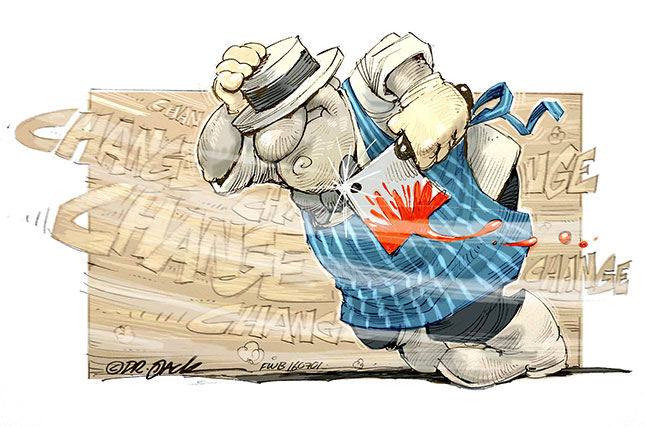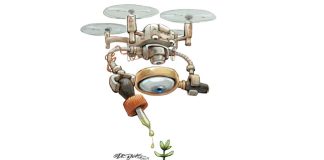
South Africa at the moment is not a very comfortable place for business. We narrowly escaped a ratings downgrade to junk status by Standard & Poor’s, our gross domestic product has shrunk by 1,2% over the last quarter, and the agriculture industry has recorded its fifth consecutive quarter of negative growth since the end of 2014.
Many people are asking themselves whether it’s still worth investing in the country. The truth is that this is the time
that risk-takers take chances and challenge the status quo.
It is definitely happening in the Western Cape. Over the past year, jobs in agriculture in the province have grown by more than 60%, in spite of the drought and severe water restrictions. Employment went down to 169 000 due to mechanisation in response to job protests in 2012, but over 214 000 people are now employed in the sector in the province. Western Cape nurseries are unable to keep up with the demand for nursery trees.
The Fourth Industrial Revolution
But it is not only South African businesses that are at a crossroads. Industries worldwide are challenged by a wave of economic disrupters caused by the Fourth Industrial Revolution.
Around the 1780s, the First Industrial Revolution used water and steam to mechanise production. In the 1870s, electric power was used to create mass production during the Second Industrial Revolution. The Third Revolution started around the 1970s and concerned the use of electronics and information technology to automate production.
The Fourth, which we are facing now, has been brought on by huge advances in electronic processing power and the interconnectedness of things. It is blurring the lines between physical, digital and biological spheres, and heralds the rise of automation and ever more intelligent machines. It means that people from all industries will have to start thinking differently about business if they want to be in business five or 10 years from now.
AirBnB and Uber taxis are two good examples of how the “interconnectedness of things” are revolutionising industries. AirBnB is allowing people to rent out their homes to travellers, usually at a fraction of what it would have cost to stay in a hotel. Uber taxis is a phone app that allows you to quickly book a taxi in the neighbourhood and pay for it through the app.
The company predicts that it will create more than two million jobs over the next year. It is a huge disrupter in the transport industry, resulting in protests and fights not only in South Africa, but across the world.
To me, Uber is a signal of something even bigger. It has been predicted that 20 years from now, many people will no longer own cars, because buying a car and parking costs would have become too expensive. Instead, there will be ‘stop-and-go’ stations, where people can get picked up or dropped off.
I imagine you will press the Uber button and a drone car will pick you up. With improvements in global positioning systems, the chances of car accidents will be greatly reduced. There are already new cars that switch off by themselves if you get too close to a potential crash. Just think of the consequences this would have on the panel beating and insurance industries.
Incubators
While many people do not take note of these changes, you should make provision for them in your business planning. Identify the disrupters that will change your way of doing business, and adapt yourself to stay relevant. It’s no good complaining that you aren’t making any money because you’re only a price-taker and the retailers are taking all the money.
You have to rethink how goods get to the market and trade takes place. Amazon, for example, wants to deliver ‘online purchases’ to customers based on their phones’ GPS coordinates.
We can learn a lot from information technology services and the banking industry in this regard. They are putting up ‘incubators’, where people can bounce off new ideas and innovations. While it might seem absurd that a bank takes part in an activity like this, it helps them to identify potential disrupters and put checks in place to adapt to future trends.
What is the agricultural industry doing to stay relevant? How is your business adapting in a world where the first steak has already been cultivated in a Petri dish? What does this mean to an economy, such as ours, where there is such a huge gap between the haves and the have-nots? How are your techies and thinkers helping you to redesign who you are? These changes are happening without us and despite us.
The industry obviously has some immediate priorities – the drought, veterinary services, research, and biosecurity – that must be addressed. At the same time, however, we should not lose sight of the bigger picture and the way in which the Fourth Industrial Revolution is changing our industry.













